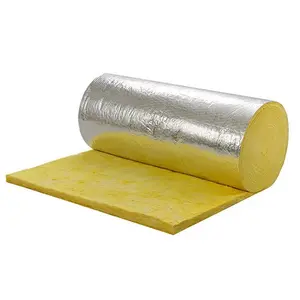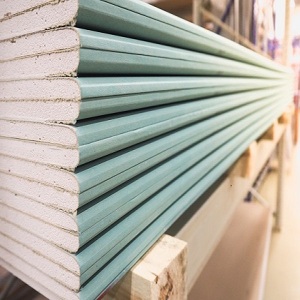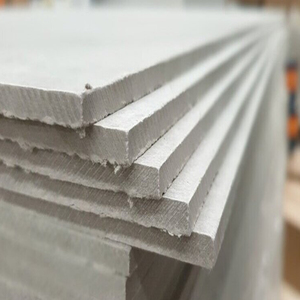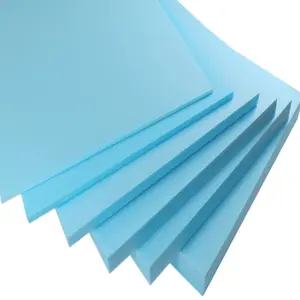Glass wool is a lightweight, fibrous insulation material made from melted glass spun into fine fibers. It offers excellent thermal insulation, helping to maintain stable indoor temperatures and reduce energy costs, and provides superior sound absorption, making it ideal for noise control in residential, commercial, and industrial spaces. It is also non-combustible, adding a layer of fire safety to buildings. With its durability, resistance to moisture and mold, and ease of installation, glass wool is a versatile, eco-friendly solution that enhances energy efficiency and long-term performance in any construction project.
Description
What is Glass Wool?
Glass wool is a type of fiberglass insulation made from very fine glass fibers. During its production, molten glass is spun into fibers and then bonded together to form a wool-like texture. This process creates a lightweight, flexible, and highly efficient insulating material, which is available in various forms like rolls, boards, or loose-fill for different applications. The porous nature of glass wool makes it ideal for thermal and acoustic insulation, making it a popular choice in the construction industry.
Why Glass Wool is Good for Any Project
- Superior Thermal Insulation
Glass wool’s primary advantage lies in its excellent thermal insulation properties. The fine glass fibers trap air, significantly reducing heat transfer. This makes it an effective barrier against heat loss in winter and heat gain in summer, ensuring energy efficiency in buildings. By reducing the need for heating and cooling systems, glass wool helps lower energy costs and contributes to a building’s sustainability. - Effective Acoustic Insulation
In addition to thermal benefits, glass wool is widely recognized for its acoustic insulation capabilities. The porous structure of glass wool absorbs sound waves, making it ideal for reducing noise pollution in various environments. This makes it particularly suitable for office spaces, studios, theaters, and other buildings where sound control is crucial. - Fire Resistance
Glass wool is a non-combustible material, offering excellent fire-resistant properties. It does not burn easily and can withstand high temperatures, providing an additional layer of safety to buildings. This makes it a preferred choice for projects that prioritize fire safety, especially in commercial and industrial settings. - Lightweight and Easy to Install
Despite its insulating strength, glass wool is lightweight and easy to handle. This makes it simple to transport, cut, and install, even in tight spaces or complex architectural designs. Its lightweight nature also reduces the structural load on buildings, which is especially advantageous in renovations or retrofitting older structures. - Cost-Effective Solution
Glass wool is known for being a cost-effective insulation option compared to other materials. It offers long-term energy savings, as its insulation properties help reduce heating and cooling expenses. Additionally, the material’s durability ensures a long lifespan with minimal maintenance, making it a wise investment for any construction project. - Eco-Friendly and Recyclable
Glass wool is environmentally friendly, as it is often made from recycled glass. It can also be recycled at the end of its use, reducing waste and promoting sustainable building practices. Its use in green building projects helps in achieving certifications like LEED (Leadership in Energy and Environmental Design), making it a responsible choice for environmentally conscious projects. - Versatility in Application
Glass wool is available in different densities and forms, such as rolls, slabs, and pre-cut boards, allowing it to be used in a wide range of construction applications. It can be installed in walls, ceilings, roofs, floors, and even HVAC systems to enhance insulation across various parts of a building. This versatility makes it adaptable for both new constructions and renovations.
Applications of Glass Wool in Construction Projects
- Residential Buildings: Glass wool is used for insulating walls, attics, and roofs to maintain comfortable indoor temperatures and improve energy efficiency in homes.
- Commercial Spaces: It is ideal for noise reduction in office buildings, conference rooms, and commercial centers, ensuring a quiet and comfortable working environment.
- Industrial Facilities: Due to its fire resistance and durability, glass wool is used in factories, power plants, and other industrial settings where safety and thermal regulation are critical.
- HVAC Systems: Glass wool is often used as duct insulation in heating, ventilation, and air conditioning systems to minimize energy loss and ensure efficient temperature control.
Why Choose Glass Wool for Your Project?
Glass wool offers a comprehensive solution for both thermal and acoustic insulation needs, making it suitable for a wide range of projects. Its combination of energy efficiency, safety, ease of installation, and cost-effectiveness makes it a valuable addition to any building. Whether you are working on a new construction, a renovation, or a retrofit, glass wool can help achieve better energy performance, enhance comfort, and ensure long-term durability. Its environmental benefits also align with modern building standards focused on sustainability, making glass wool an all-around excellent choice for any project.








